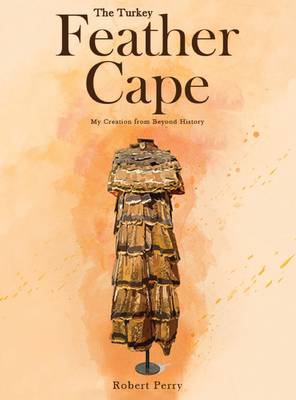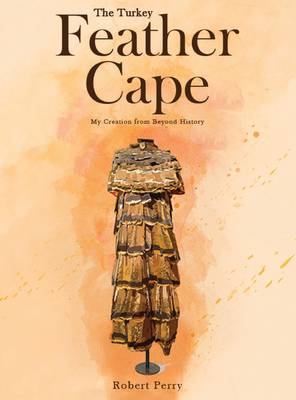
- Retrait gratuit dans votre magasin Club
- 7.000.000 titres dans notre catalogue
- Payer en toute sécurité
- Toujours un magasin près de chez vous
- Retrait gratuit dans votre magasin Club
- 7.000.0000 titres dans notre catalogue
- Payer en toute sécurité
- Toujours un magasin près de chez vous
Description
THE TURKEY FEATHER CAPE my creation from beyond history.
This is an 'Indian Jones' cultural adventure that goes back a millennium; earlier than 1541 AD, the first history written about the Chickasaw Nation. When the door is opened to the past, we gain wisdom for the future. The Chickasaw never had, never needed, a written language, because the stories and knowledge were passed down by the elders, the Honored Ones. Much corporate knowledge died with the elders in wars with Big countries and the 1830s forced diaspora to Indian Territory. All knowledge about the feather cape was lost.
When Oklahoma became a state in 1907, tribes would no longer exist, and their people assimilated. Earlier treaties required one Chickasaw to deal with the US government, appointed by the US president as Tribal Governor. The People with proof of Indigenous blood stayed low until the 1960s when the Governor gained support from US legislators for official recognition. It was a joyous day in 1983 - US Congress had ratified bylaws and now the Tribe could elect officials and do business. The people voted in 2000 for the tribe to build a Culture Center which opened in July of 2010 in Sulphur, Oklahoma, which continues to grow.
All elders are wise but the few tribal elders, who are the "eyes," watch out for the tribe. The Council of Elders advises the Governor and Legislators on cultural issues. Even before construction had started on the Culture Center, the Director wanted displays to show that woven natural fibers were used. Her challenge to this tribal elder was to research the turkey feather, make one, and document to show future generations. There was no museum, no budget, but the feather cape would be seen by thousands. Challenge accepted.
Written history went back to the DeSoto Expedition when a soldier killed Chief Tuscaloosa wearing a feather cape as spiritual armor. Archeologists have recovered artifacts from the Mississippian Mound builder culture that began about 1000 AD. While archeologists can't interpret how the artifact was used, a lifetime in tribal culture gives understanding about the Honored Ones who wore turkey feather capes. It took two years of research to gather materials. Chickasaw turkey hunters brought the birds to clean feathers. The cape took three months to build and document this cultural adventure.
Taking on a complex project has its own reward and success can lead to other complex projects. The instruction herein is to show the way for future generations and for the present reader to take on his/her complex project. To overcome the "hard" spots, please refer to the one-page primer on getting results with creativity. Since the Cultural Museum opened in 2010, over 900,000 visitors have learned about Chickasaw. It's also gratifying to a tribal elder that the Chickasaw Nation has grown so large in one lifetime.
Spécifications
Parties prenantes
- Auteur(s) :
- Editeur:
Contenu
- Nombre de pages :
- 86
- Langue:
- Anglais
Caractéristiques
- EAN:
- 9798886221299
- Date de parution :
- 17-03-22
- Format:
- Livre relié
- Format numérique:
- Genaaid
- Dimensions :
- 216 mm x 279 mm
- Poids :
- 494 g

Les avis
Nous publions uniquement les avis qui respectent les conditions requises. Consultez nos conditions pour les avis.






